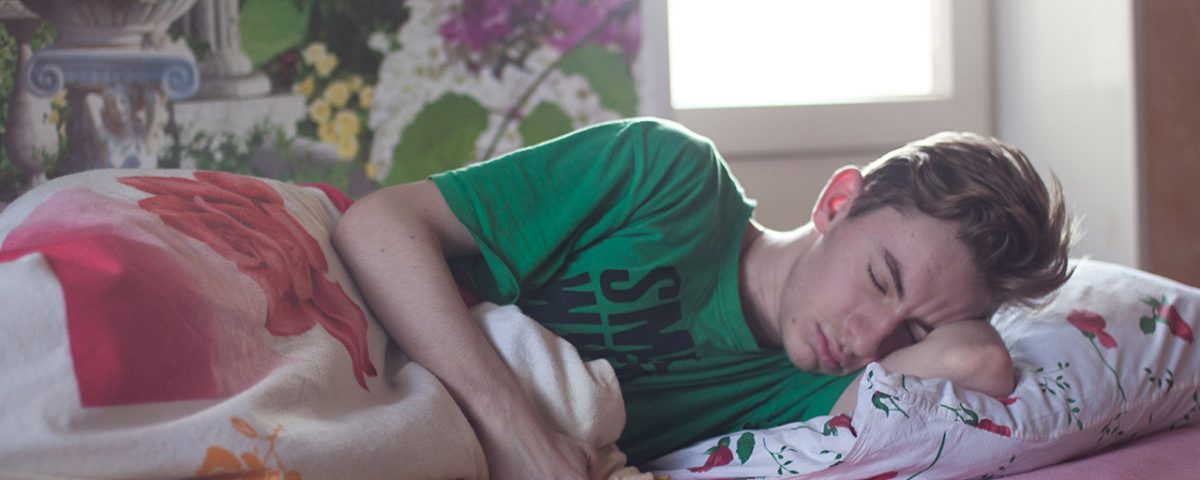


Short Term and Long Term Effects of Anxiety
November 25, 2019

Guide to Parenting a Child With A Mental Illness
December 9, 2019What Are OCD Dreams?


In the world of mental health, dreams can be like a special window into our thoughts and feelings that we might not fully understand. People dealing with obsessive-compulsive disorder (OCD) experience something unique in their dreams, often called OCD dreams. These aren't just random images at night; they connect closely with the challenges of OCD in daily life. They give us a deeper look into the worries and stress that come with this mental health condition. Exploring OCD dreams helps us see how our minds deal with obsessive thoughts and repetitive behaviors and the interesting connection between mental health and the dream world.
OCD and Dreams
Obsessive-compulsive disorder (OCD) is a mental health condition characterized by persistent, unwanted thoughts (obsessions) and repetitive behaviors or mental acts (compulsions) aimed at reducing the anxiety or distress caused by those obsessions. These behaviors can interfere significantly with daily life and may not provide lasting relief.
OCD has several subtypes, and individuals with OCD may experience a range of symptoms. Some common subtypes include:
- Contamination OCD: Fear of germs or contamination, leading to compulsive washing or avoidance behaviors.
- Checking OCD: Persistent doubts and fears, leading to compulsive checking of things like locks, appliances, or personal safety.
- Hoarding OCD: Difficulty discarding possessions, resulting in an accumulation of clutter and difficulty functioning in living spaces.
- Pure-O (Purely Obsessional) OCD: Individuals experience distressing, intrusive thoughts without outwardly visible compulsive behaviors. Mental rituals may be used to neutralize the anxiety.
- Symmetry and Orderliness OCD: The need for things to be arranged in a particular way or a fear of things being asymmetrical or disorganized.
Dream OCD, sometimes considered a subtype of Pure-O OCD, involves obsessive thoughts and distressing images that occur during sleep. Individuals who experience OCD dreams may experience intrusive and distressing thoughts or mental images during their dreams that are consistent with their waking obsessions. OCD can cause bad dreams, and these dreams can be vivid and emotionally charged, leading to increased anxiety upon waking.
It's important to note that while these dreams can be distressing, they are still part of the broader spectrum of OCD symptoms. The content of OCD dreams often mirrors the individual's waking obsessions, and the distress caused by these dreams can contribute to the overall impact of OCD on daily functioning. Individuals experiencing dream OCD may find relief through therapy that addresses both the waking obsessions and the distressing dreams.
Can OCD Affect Dreams?
Yes, OCD can affect dreams. In individuals with OCD, the themes and content of their obsessive thoughts can extend into their dreams. These dreams may involve scenarios related to their specific obsessions, and the emotional intensity experienced during these dreams can contribute to heightened distress.
For example, if someone has OCD with contamination fears, they might dream about scenarios involving dirt or germs. Similarly, individuals with checking compulsions might have dreams centered around situations where they need to repeatedly check things for safety. These dreams often echo the obsessions and compulsions experienced during waking hours, reflecting the pervasive nature of OCD.
The occurrence and impact of OCD dreams can vary among individuals. Some may have more vivid and distressing dreams, while others may not notice a significant connection between their disorder and dreams. Understanding the interplay between OCD and dreams is part of the broader exploration of how this disorder manifests in different aspects of an individual's life. Individuals who relate to these symptoms should discuss them with a mental health professional as part of the overall treatment plan for OCD.
Intrusive Dreams & OCD
Intrusive thoughts do affect dreams, and intrusive dreams can be a manifestation of OCD, particularly in individuals experiencing Pure-O (Purely Obsessional) OCD. As we previously mentioned, these obsessions can extend into the realm of dreams, leading to what is commonly referred to as intrusive dreams. Examples of intrusive thoughts related to Pure-O OCD include contamination obsessions, harm obsessions, and relationship obsessions.
Can OCD Mess With Your Sleep?
Unfortunately, yes, OCD can affect sleep. Intrusive thoughts and compulsive behaviors can disturb sleep in several ways, including:
- Anxiety and rumination: People with OCD often experience heightened anxiety due to their intrusive thoughts. This anxiety can make it difficult for them to relax and fall asleep. Additionally, individuals with OCD may engage in rumination, which involves overthinking or obsessively reviewing distressing thoughts, preventing the mind from settling down for sleep.
- Compulsive rituals: Some individuals with OCD perform compulsive rituals, which may involve checking, counting, or other repetitive behaviors. These rituals can be time-consuming and may disrupt the normal bedtime routine, leading to delayed sleep onset.
- Nighttime intrusive thoughts: Intrusive thoughts, a common feature of OCD, can also occur during the night, disrupting sleep. These thoughts may be distressing and emotionally charged, contributing to nighttime awakenings and difficulties returning to sleep.
- Sleep-related obsessions: Some individuals with OCD may experience obsessions related specifically to sleep, such as fears of harm occurring while asleep. These fears can further exacerbate anxiety and contribute to sleep disturbances.
- Medication side effects: In some cases, the medications prescribed to manage OCD symptoms, such as selective serotonin reuptake inhibitors (SSRIs), can have effects on sleep, including insomnia or vivid dreams.
If you or someone you know is experiencing sleep disturbances due to OCD, it is essential to consult with a mental health professional who can provide personalized guidance and develop an appropriate treatment plan. Improved management of OCD symptoms can contribute to better sleep quality and overall well-being.
With numerous facilities for mental health in Florida and Massachusetts, the Banyan team is highly experienced in treating mental health disorders such as OCD. For more information regarding our mood and anxiety disorder treatment, call Banyan Mental Health today at 888-280-4763 or contact us online to chat with an admission specialist.









